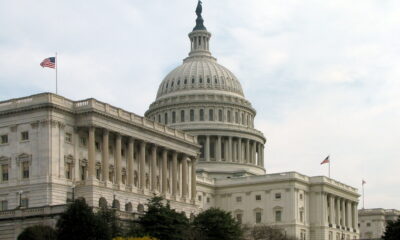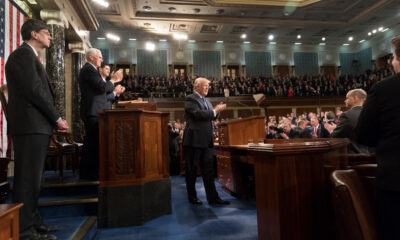Education
Cyber Charter School Students Shouldn’t Be Denied Access to Extracurriculars
The founder of Pennsylania Families for Educational Choice decries the exclusion of cyber charter school students from extracurriculars.

As high school students in the Neshaminy School District gathered for their annual Halloween dance this October, one local girl was told by district officials that she could not join her friends. The reason: she attends a cyber charter school.
I received an email from Erica Spadaccino, the girl’s mother. She had engaged her local legislators, the Neshaminy School District superintendent, and even the Pennsylvania Department of Education’s Division of Charter Schools to try and get answers about why her daughter couldn’t participate. After the PDE reached out to the school district at the family’s request, the PDE simply district policy: they “do not consider a school dance to be an extracurricular activity. They limit this participation to district students only.”
The Pennsylvania Charter School Law, however, mandates that cyber charter students should have access to these opportunities. A charter school student’s district of residence is required “to allow the student to participate in the school district’s extracurricular activities if the student can fulfill the requirements of participation and the charter school does not provide the same extracurricular activity.” The law stipulates further that “The requirements of participation shall apply equally to charter school students and students attending schools of the school district.”
The superintendent told Spadaccino that one reason for not allowing her daughter to attend the dance was the district’s inability to discipline her child if an incident occurred at the event. But the superintendent also mentioned that if this student wanted to participate in sports, she could – the district had allowed this in the past and would continue to do so.
An extracurricularis defined as “an activity at a school or college pursued in addition to the normal course of study,” one that is “not falling within the scope of a regular curriculum,” or “any activity that doesn’t count towards an academic credit.” Extracurriculars are cited in college and work applications to demonstrate leadership, skills, interests, aptitudes, and abilities; they also provide much-needed psychological, emotional, and social benefits to children.
As an example of how the definition works in practice, consider Conestoga Valley School District in Lancaster, Pennsylvania. It defines extracurricular activities as “those activities that occur before 7:40 a.m. or after 2:36 p.m. (including school-sponsored summer activities), or those unevaluated/ungraded activities that are incorporated in the school day.”
Practices vary widely. Some districts allow for sports but not dances or other “school events.” Some use this denial as an opportunity to entice parents to enroll in the district’s own cyber program to achieve eligible status for these social activities. Other districts allow cyber charter school children to attend Homecoming and Prom. While some districts deny cyber charter students access to district-facilitated PSAT and AP tests, others are very accommodating.
PA Families for Education Choice conducted a November poll of Pennsylvania cyber charter parents. We found that 56% have never asked their districts about extracurriculars, 18% would not be interested even if they were offered, 17% reside in a district that allows cyber charter student participation in some extracurriculars, and only 3% were permitted to attend all extracurriculars and co-curriculars (extracurriculars that get a grade, typically subject to superintendent approval).
When I testified at the Appropriations Committee Education Tour stop in Beaver, I mentioned the fact that some districts specifically designate some extra-curriculars as for “district students only” or charge the cyber charter family an additional fee for participation.
At the conclusion of the hearing, Representative Joe Ciresi expressed to me his support for fair access to extracurriculars. I have spoken with others in Harrisburg who have questioned the legality of how districts are unevenly (and some unfairly) applying this policy. Children are missing out on the many benefits attached to these events.
Erica Spadaccino further explains that “negotiating with the district about extracurricular activities, and being told ‘No, she can’t participate,’ makes us feel like second class citizens. My daughter is part of this community – she plays sports and is in Scouts. We live here. We have friends here. To blatantly ignore the law is devastating to a child. She knows what her friends are doing after school. Why can’t she if that’s legally available to her? The answer should have been simple. ‘Yes, what extracurricular would you like to attend? We are happy to serve ALL children in our district.’ Instead, now she feels like an outsider.”
Charter School Law “requires a charter school student’s school district of residence to allow the student to participate” in extracurricular activities. Research has continually shown that children who have opportunities to interact with peers develop better communication and conflict-resolution skills, emotional intelligence, and tend to do better in school. Being a part of a community fosters confidence and a sense of belonging, facilitates children’s ability to relate to others, and helps them develop into productive community members and citizens. Children shouldn’t be denied these constructive and necessary experiences.
This article was originally published by RealClearPennsylvania and made available via RealClearWire.
Sharon Sedlar is a resident in the Brentwood area, right outside of Pittsburgh, Pennsylvania. Her extensive work experience in the project management, human resource, health, counseling, and parenting fields naturally lends itself (and her upbeat, motivational spirit) to positive and beneficial change for others.
-

 Civilization5 days ago
Civilization5 days agoMaduro’s Capture: U.S. Foreign Policy in Latin America
-

 Civilization3 days ago
Civilization3 days agoA Better U.S. Strategy for Greenland Than Annexation
-

 Education3 days ago
Education3 days agoIgnoring the Science: The Curious Case of Cell Phone Bans
-

 Guest Columns4 days ago
Guest Columns4 days agoWaste of the Day: Thousands of Earmarks in Illinois State Budget
-

 Education4 days ago
Education4 days agoA Solid Core Enlivens Free Speech and Viewpoint Diversity
-

 Executive3 days ago
Executive3 days agoWaste of the Day: Utah University Trustees Don’t Know Their Job
-

 Civilization4 days ago
Civilization4 days agoEnd the Filibuster – Or Stop Pretending To Govern
-

 Civilization2 days ago
Civilization2 days agoTrump’s Longest Speech, His Shortest Margin for Error








